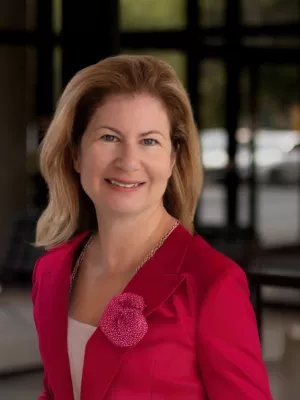DIFA 2007 » Sophie Lyne Zaretto
CPA, CPA·EJC, CPA·IFA, MBA, MFAcc, CFF

Sophie is Senior Advisor in Fraud & AML Risk Management. She has over 25 years of experience in forensic accounting, accounting, internal audit and advisory services in the public sector, SMEs, and large public and private corporations across a wide range of industries. She has led a number of investigations of fraud and other illegal practices such as misappropriation, kickbacks, conflicts of interest and contract irregularities including overbilling.
She has overseen an ethics and compliance program for companies where required by the market regulator to develop a culture of integrity and compliance to prevent and detect illegal and unethical acts. She has planned and carried out activities to raise awareness to the prevention and detection of fraud and other legal acts. She has assisted legal and judicial authorities in proceedings following forensic investigations.
In internal audit, she has designed and performed procedures to achieve the objectives set for the various annual audit plan engagements. She has noted the strengths and actual or potential consequences of weaknesses observed, identifying the causes, proposing solutions and presenting summarized findings to management.
She has drafted and submitted numerous reports to various levels of management, leveraging her knowledge and technical experience in her role.
In addition to being a chartered professional accountant (CPA, CA), She also hold the title of CA - expert in investigations and forensic accounting (CA-EJC).
What are some of the key skills and knowledge you acquired during the MFAcc program that are still important to you today?
The DIFA program allows us to deal with many different complex situations. We have to use our critical thinking in order to approach the problem from new angles, and maybe carry out some more research.
This applies everyday in my career as a forensic accountant. Also, we receive constructive criticism from instructors and peers over the duration of the Program. In a career in forensic accounting, I need to be capable of taking constructive criticism and using what I'm told to improve my own work.
What were some of the most valuable lessons and/or memorable experiences from your time at MFAcc?
For me, the DIFA & MFAcc Program is more than just an education. It is a place where I built many new business relationships. The Capstone sessions (at the beginning and at the end of the Program) made me establish connections with instructors who are experts in forensic accounting. In classes (in person and virtual), I engaged with peers through group work and it contributed to expand my professional network. I graduated 17 years ago and I'm still in touch with many of my DIFA peers.
What advice would you give to professionals who are looking to pursue a degree and career in Forensic Accounting?
Working as a forensic accountant implies that you can identify questionable financial information, usually for the purpose of investigating white-collar crimes. It requires not only to be good in accounting and finance but also have analytical and communication skills.
You also have to be curious and stay current with emerging technologies and latest technology trends: fraud has undergone a major transformation over the years and adapts to advancements in technology. The forensic accountant has to be aware of these transformations.
Are there any major accomplishments or achievements you would like to share with us?
The DIFA Program had a great influence on my career in forensic accounting and fraud-related field. It has taught me that giving up should never be an option. Instead, you should embrace the obstacles as opportunities to learn, grow and become stronger. This motto has been the guiding star of my personal and my working life.
